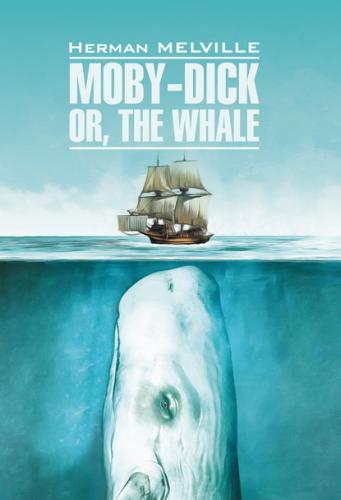“While you take in hand to school others, and to teach them by what name a whale-fish is to be called in our tongue, leaving out, through ignorance, the letter H, which almost alone maketh[1] up the signification of the word, you deliver that which is not true.”
“Whale. * * * Sw. and Dan. hval. This animal is named from roundness or rolling; for in Dan. hvalt is arched or vaulted.”
“Whale. * * * It is more immediately from the Dut. and Ger. Wallen; A. S.[2] Walw-ian, to roll, to wallow.”
JiI, Hebrew.
xntos, Greek.
Cetus, Latin.
Whoel, Anglo-Saxon.
Hvalt, Danish.
Wal, Dutch.
Hwalt, Swedish.
Whale, Icelandic.
Whale, English.
Baleine, French.
Ballena, Spanish.
Pekee-nuee-nuee, Feegee.
Pehee-nuee-nuee, Erromangoan.
Extracts
It will be seen that this mere painstaking burrower and grub-worm of a poor devil of a Sub-Sub appears to have gone through the long Vaticans and street-stalls of the earth, picking up whatever random allusions to whales he could anyways find in any book whatsoever, sacred or profane. Therefore you must not, in every case at least, take the higgledy-piggledy whale statements, however authentic, in these extracts, for veritable gospel cetology. Far from it. As touching the ancient authors generally, as well as the poets here appearing, these extracts are solely valuable or entertaining, as affording a glancing bird's-eye view of what has been promiscuously said, thought, fancied, and sung of Leviathan, by many nations and generations, including our own.
So fare thee well, poor devil of a Sub-Sub, whose commentator I am. Thou belongest to that hopeless, sallow tribe which no wine of this world will ever warm; and for whom even Pale Sherry would be too rosy-strong; but with whom one sometimes loves to sit, and feel poor-devilish, too; and grow convivial upon tears; and say to them bluntly with full eyes and empty glasses, and in not altogether unpleasant sadness – Give it up, Sub-Subs! For by how much the more pains ye take to please the world, by so much the more shall ye forever go thankless! Would that I could clear out Hampton Court and the Tuileries[3] for ye! But gulp down your tears and hie aloft to the royal-mast with your hearts; for your friends who have gone before are clearing out the seven-storied heavens, and making refugees of long-pampered Gabriel, Michael, and Raphael, against your coming. Here ye strike but splintered hearts together – there, ye shall strike unsplinterable glasses!
“And God created great whales.”
“Leviathan maketh a path to shine after him;
One would think the deep to be hoary.”
“Now the Lord had prepared a great fish to swallow up Jonah.”
“There go the ships; there is that Leviathan whom thou hast made to play therein.”
“In that day, the Lord with his sore, and great, and strong sword, shall punish Leviathan the piercing serpent, even Leviathan that crooked serpent; and he shall slay the dragon that is in the sea.”
“And what thing soever besides cometh within the chaos of this monster's mouth, be it beast, boat, or stone, down it goes all incontinently that foul great swallow of his, and perisheth in the bottomless gulf of his paunch.”
“The Indian Sea breedeth the most and the biggest fishes that are: among which the Whales and Whirlpooles called Balæne, take up as much in length as four acres or arpens of land.”
“Scarcely had we proceeded two days on the sea, when about sunrise a great many Whales and other monsters of the sea, appeared. Among the former, one was of a most monstrous size. * * * This came towards us, open-mouthed, raising the waves on all sides, and beating the sea before him into a foam.”
“He visited this country also with a view of catching horse-whales, which had bones of very great value for their teeth, of which he brought some to the king. * * * The best whales were catched in his own country, of which some were forty-eight, some fifty yards long. He said that he was one of six who had killed sixty in two days.”
“And whereas all the other things, whether beast or vessel, that enter into the dreadful gulf of this monster's (whale's) mouth, are immediately lost and swallowed up, the sea-gudgeon retires into it in great security, and there sleeps.”
“Let us fly, let us fly! Old Nick take me if it is not Leviathan described by the noble prophet Moses in the life of patient Job.”
“This whale's liver was two cart-loads.”
“The great Leviathan that maketh the seas to seethe like boiling pan.”
“Touching that monstrous bulk of the whale or ork we have received nothing certain. They grow exceeding fat, insomuch that an incredible quantity of oil will be extracted out of one whale.”
“The sovereignest thing on earth is parmacetti for an inward bruise.”
“Very like a whale.”
“Which to secure, no skill of leach's art
Mote him availle, but to returne againe
To his wound's worker, that with lowly dart,
Dinting his breast, had bred his restless paine,
Like as the wounded whale to shore flies thro’ the maine.”
“Immense as whales, the motion of whose vast bodies can in a peaceful calm trouble the ocean till it boil.”
“What spermacetti is, men might justly doubt, since the learned Hosmannus in his work of thirty years, saith plainly, Nescio quid sit[5].”
“Like Spencer's Talus with his modern flail
He threatens ruin with his ponderous tail.
* * *
Their fixed jav’lins in his side he wears,
And on his back a grove of pikes appears.”
“By art is created that great Leviathan, called a Commonwealth or State – (in Latin, Civitas[6]) which
